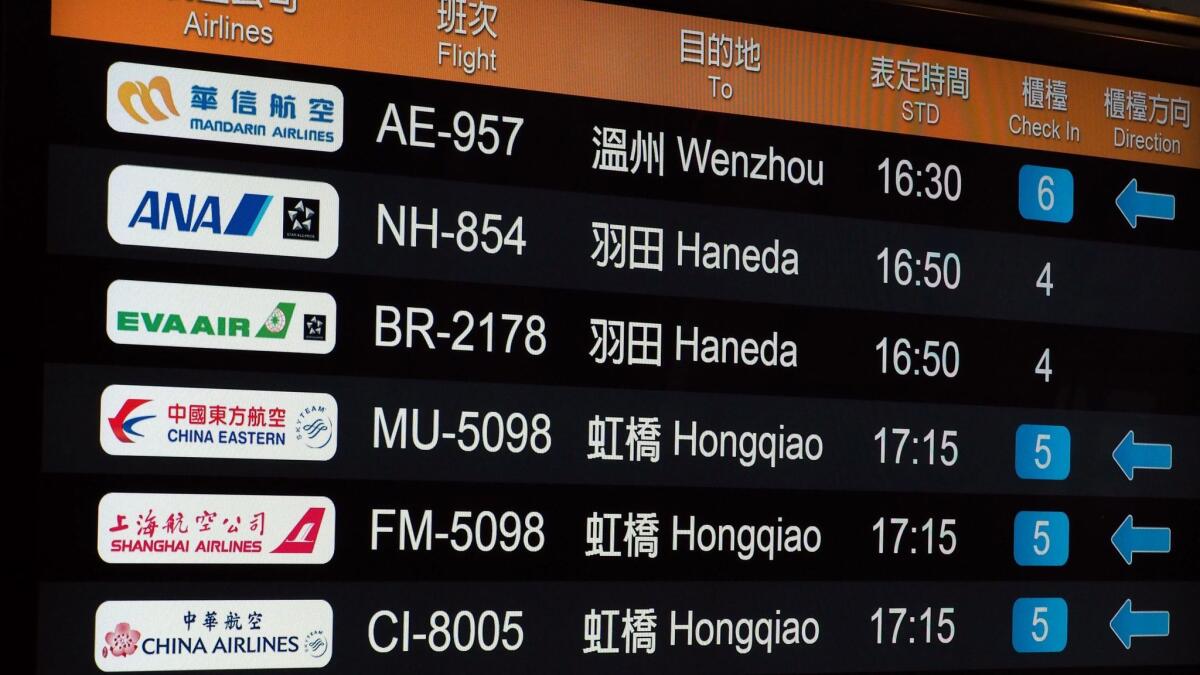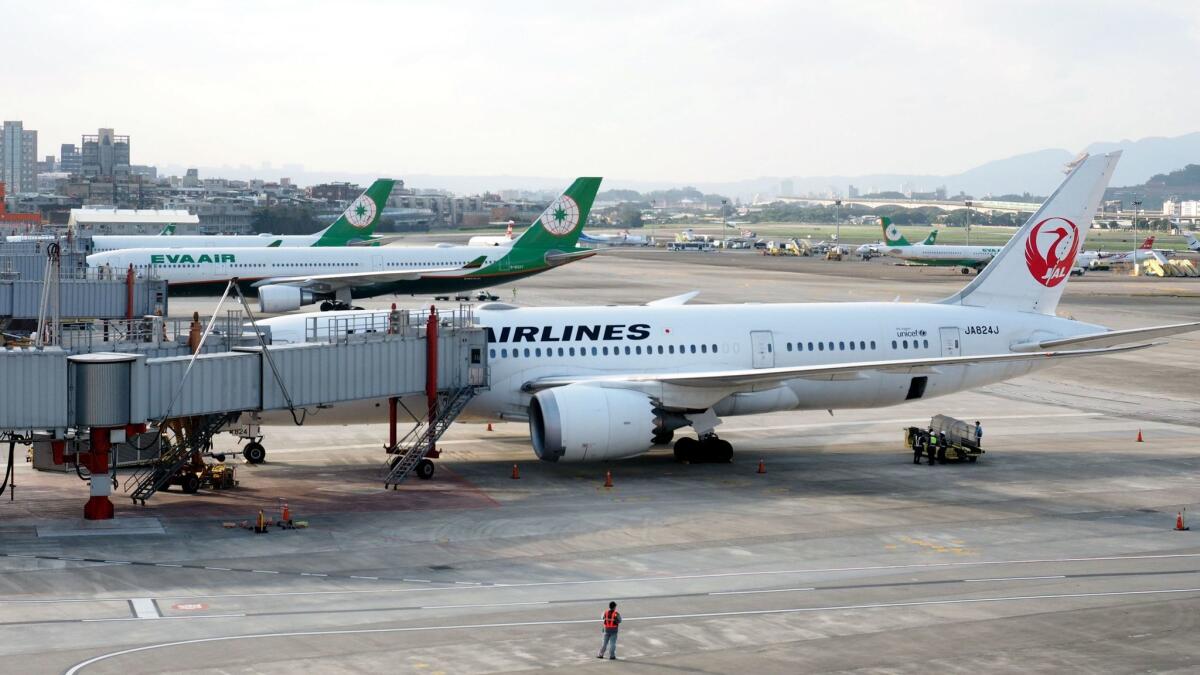The skies over Taiwan just got a little less friendly

After nearly two years of polite complaining, Taiwan’s government has taken action against pressure from political rival China by freezing applications from two major Chinese airlines, setting a stage for retaliation.
China and Taiwan have been separately ruled since the Chinese civil war of the 1940s, but China claims sovereignty over the island and insists on eventual unification despite surveys showing most Taiwanese oppose it. Officials in Beijing resent Taiwanese President Tsai Ing-wen for rejecting their “one China” condition for dialogue.
On Friday, Taiwan’s Civil Aeronautics Administration put on hold applications from China Eastern and Xiamen Air to add a combined 176 flights during the Lunar New Year holiday next month. The government in Taipei cited safety concerns over China’s unilateral launch Jan. 4 of four new civilian aviation routes in the Taiwan Strait less than five miles from a median line dividing their air zones.
“The Civil Aeronautics Administration has mentioned the risk many times to China Eastern and Xiamen Air,” the Taiwanese government’s China policymaking council said in a statement late Friday. “The council respects and supports the Civil Aeronautics Administration plan for handling this matter and appeals to mainland China to hold technical negotiations and protect air safety.”
The aviation tiff crowned by Taiwan’s first retaliatory action since Tsai took office in May 2016 threatens to elevate a spat between the two sides.

Since Tsai began her term, China has exerted other pressure, analysts and officials in Taiwan say, by passing military aircraft near the island, scaling back tourism and asking Taipei’s diplomatic allies to switch sides. On Wednesday, China passed an aircraft carrier through the Taiwan Strait, putting the island’s Defense Ministry on alert.
Tsai’s government normally accuses China of frustrating relations and says it has expressed goodwill toward the other side.
“Why now the timing? It’s because after all these different moves, one after another, the Tsai Ing-wen government doesn’t feel like it’s got anything else that’s efficient for fighting back,” said Nathan Liu, international affairs professor at Ming Chuan University in Taiwan. “This is really very serious.”
China condemned the delay in approving Lunar New Year flights as a slight to people who expect to travel during the holiday. Despite their hostilities, the two sides opened direct flights in 2008 to promote tourism and make it easier for at least 1 million Taiwanese people in mainland China to return home for the holiday. Chinese airlines planned to add 509 flights during a two-week New Year period.
“This kind of deed that disregards relations among people on both sides, especially Taiwanese compatriots going home for the holidays, ignores people’s welfare and hurts people’s feelings,” the Civil Aviation Administration of China said in a statement. “We give it our condemnation.”
China defends the opening of the Taiwan Strait civil aviation routes, particularly a north-south route known as M503, as a way to ease congestion along the popular Hong Kong-Shanghai flight path. About 180 flights use that route daily, up from 126 a day 10 years ago, air travel intelligence firm OAG says.
Taiwan says China should have negotiated to ensure mitigation of any safety risks before launching the new routes.
Beijing’s state-run China Daily newspaper accused Tsai of “needlessly politicizing” a commercial air route.
Tsai is fighting over the air route to demonstrate that she can stand up to China, said Alexander Huang, a strategic studies professor at Tamkang University in Taiwan.
“In her mind she thought she could not just quietly swallow this unilaterally imposed measure,” Huang said. “Probably she thought this is bigger than travel. It’s national pride, probably.”
Taiwan’s government faced criticism over the weekend from the Assn. of Taiwan Investment Enterprises on the Mainland, which is affiliated with the Chinese government. Member business owners want smooth trips back to the island for the Lunar New Year, which falls on Feb. 16.
“The association should understand the importance of safety and not be kidnapped by the authorities in Beijing,” Taiwan’s ruling Democratic Progressive Party spokesman Lin Tsung-sheng said in a statement Sunday.
Beijing is not expected hold negotiations on flights or any other issue unless Tsai agrees to its “one China” principle first, though China’s aviation authority said it would hold technical talks with Taiwan over safety of its new flight paths.
But neither is it expected to retaliate in ways that would anger masses of Taiwanese, as that could hurt Beijing’s long-term goal of peaceful unification, analysts in Taiwan have said over the last two years. “It’s a game of will at this moment,” Huang said.
Expect China to keep dissuading its tourists from traveling to Taiwan and cut back exchanges of students, academics and performing artists, Liu said.
ALSO
Taiwan has statues of him everywhere. Now many want Chiang Kai-shek’s image removed
Beijing won’t like it, but Congress may foster closer ties with Taiwan
China’s heralded ‘solar highway’ closed after thieves stole one of the panels
Jennings is a special correspondent.
More to Read
Start your day right
Sign up for Essential California for news, features and recommendations from the L.A. Times and beyond in your inbox six days a week.
You may occasionally receive promotional content from the Los Angeles Times.





